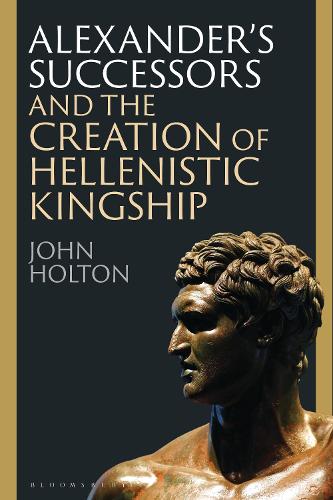
Alexanders Successors and the Creation of Hellenistic Kingship
(Hardback)
Available Formats
Publishing Details
Alexanders Successors and the Creation of Hellenistic Kingship
By (Author) John Holton
Bloomsbury Publishing PLC
Bloomsbury Academic
10th July 2025
United Kingdom
Classifications
Professional and Scholarly
Non Fiction
938.1
Physical Properties
Hardback
232
Width 154mm, Height 236mm, Spine 18mm
500g
Description
What happened to Alexander the Greats empire when he died, and to the generals and companions that had conquered that empire with him How did they begin to develop their own power and positions after his death Alexanders Successors and the Creation of Hellenistic Kingship reconstructs how the development of royal ideologies led to five powerful new kingships after Alexanders death. It reveals how ideological performances and ongoing competition among the post-Alexander elite created the reality of the long-lasting institution of Hellenistic kingship, which would last for generations and even centuries as the model for autocratic power in the ancient world. A parallel study, Royal Traditions and the Consolidation of Power by Alexanders Successors, then examines the innovative new traditions of royal ideology that were developed in the consolidation of the new Hellenistic kingships. Ranging from the early regencies and civil wars after Alexanders death to the formation of multiple independent kingdoms and beyond, the generation of Alexanders successors (323-276 BC) is comprehensively investigated. With a comparative perspective and detailed studies of diverse evidence, this is the first dedicated study of the beginnings of Hellenistic kingship and the first to put these beginnings in an international context.
Reviews
John Holtons study powerfully and elegantly sheds light on the first 40 years of Hellenistic monarchy, and these new kings attempts to legitimise their rule, and to consolidate their new kingdoms. -- Boris Chrubasik, Associate Professor of Ancient History and Classics, University of Toronto, Canada
Author Bio
John Holton is Senior Lecturer in Ancient History at Newcastle University, UK. His primary research expertise and publication record is in Hellenistic history and intellectual history, including the study of Alexander the Great and his successors (the diadochoi), ancient monarchies, and universal historiography.
